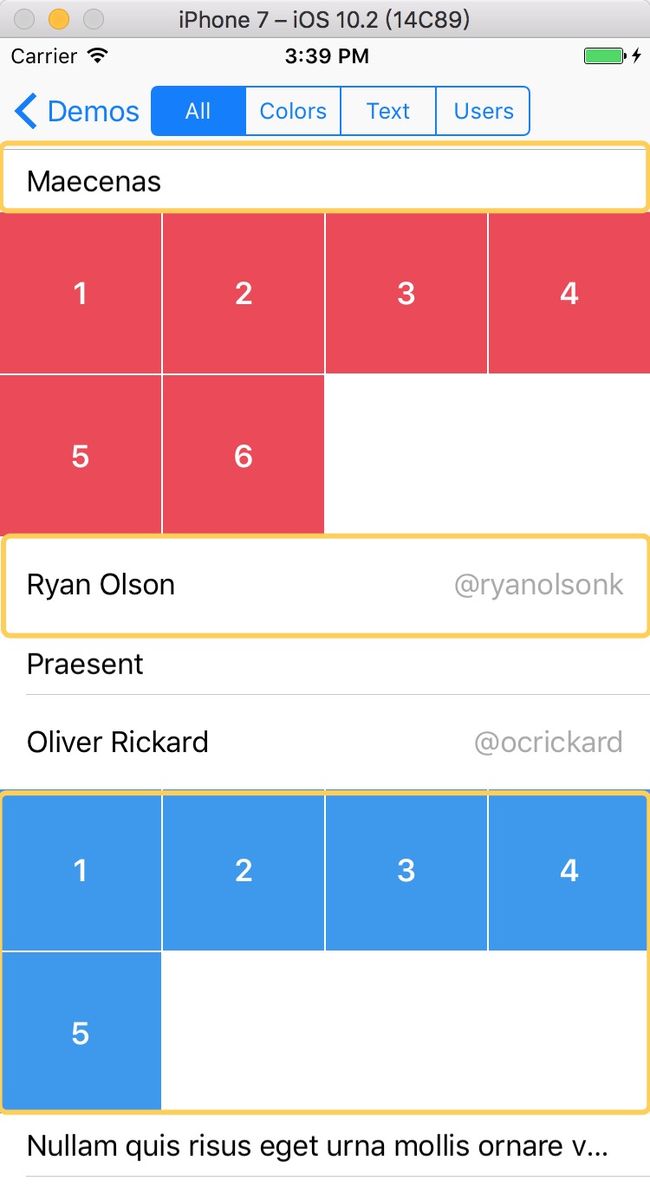- 《北京大学-DeepSeek系列教程(1)》电子书下载
AI智研社
人工智能aiAI写作AIGC生活
哈喽!伙伴们,我是小智,你们的AI向导。欢迎来到每日的AI学习时间。今天,我们将一起深入AI的奇妙世界,探索“《北京大学-DeepSeek系列教程(1)》电子书下载”,并学会本篇文章中所讲的全部知识点。还是那句话“不必远征未知,只需唤醒你的潜能!”跟着小智的步伐,我们终将学有所成,学以致用,并发现自身的更多可能性。话不多说,现在就让我们开始这场激发潜能的AI学习之旅吧。《北京大学-DeepSeek
- 解锁豆瓣高清海报(三)从深度爬虫到URL构造,实现极速下载
dreadp
爬虫pythonbeautifulsouphtml后端
脚本地址:项目地址:GazerPosterBandit_v2.py前瞻之前的PosterBandit.py是按照深度爬虫的思路一步步进入海报界面来爬取,是个值得学习的思路,但缺点是它爬取慢,仍然容易碰到豆瓣的418错误,本文也会指出彻底解决旧版418错误的方法并提高爬取速度.现在我将介绍优化版,这个版本通过直接构造URL来实现获取海报原图,准确识别、更快爬取.本文会重点讲解动态headers及其应
- Bilibili 视频弹幕自动获取和自定义屏蔽词
dreadp
音视频htmlpythonjson前端自动化
脚本地址:项目地址:GazerdmGrab.py提要适用于:任意B站视频弹幕XML文件下载.如不能,请提交issues联系我.支持指定屏蔽词.1秒即可完成自动解析任意B站视频的视频弹幕XML文件请求链接,并下载.使用方法克隆或下载项目代码。安装依赖:pipinstallrequestslxml,或者克隆项目代码后pipinstall-rrequirements.txt脚本顶部:指定常量FOLDER
- PTA基础编程集7-20 打印九九口诀表 (15分)
ohhTechSoon
PTA基础编程集
7-20打印九九口诀表(15分)下面是一个完整的下三角九九口诀表:11=112=222=413=323=633=914=424=834=1244=1615=525=1035=1545=2055=2516=626=1236=1846=2456=3066=3617=727=1437=2147=2857=3567=4277=4918=828=1638=2448=3258=4068=4878=5688=6
- Matlab S-Function模块简谈
Captain cool290
matlab
1.单个输出形式的m脚本文件如何编写functiony=fcn()y=u;最简单的例子:就是输出等于输入点一下标题栏:gotodiagram就可以回到模型界面;EditData可以修改数据类型2.多个输出形式的m脚本如何编写function[y1,y2]=fcn(u1,u2)y1=u1+u2;y2=u2-u1;这样就可以多个输入和输出了。mamatlab3.注意点:S-Function中的变量u是
- Ai时代初期,人类文明的多纬度演进方向分析
Ai度
人工智能
在AI时代初期,文明的演进呈现出多维度、跨领域的突破性特征,结合最新研究进展与实践案例,其深层变革可进一步细化为以下六大维度:一、技术平权与生产要素重构AI技术通过算力跃迁与认知革命重构生产要素。例如,华为昇腾芯片使县域政务系统获得省级决策能力,特斯拉工厂的机械臂实现0.8秒完成车身焊接,而量子-经典混合算法将药物分子模拟效率提升1200倍。这种技术平权运动正推动全球劳动生产率提升30%,同时催生
- Redhat7.6下安装Ruby on Rails环境
后青春期的诗go
经验分享rubyonrails后端
一、前置准备操作系统说明RedHatEnterpriseLinux(RHEL)7.6带GUI安装(勾选开发工具),配置好网络下载与配置yum源相关安装包下载:wgethttp://mirrors.163.com/centos-vault/7.6.1810/os/x86_64/Packages/rpm-4.11.3-35.el7.x86_64.rpmwgethttp://mirrors.163.co
- openSUSE操作系统搭建使用记录
后青春期的诗go
服务器操作系统实战资料linux运维php
操作系统版本:openSUSE-LEAP-15.0-x86-64一、常规操作基本操作1.查看IP信息ipa2.安装命令格式zypperinstallXXX3.安装使用ifconfig命令zypperinstallnet-tools-deprecated4.开启sshd服务/查看服务状态/设为开机启动systemctlstartsshd/systemctlstatussshd/systemctlen
- LAMP环境搭建(基于Fedora系统)
后青春期的诗go
服务器操作系统实战资料服务器linux运维
一、环境说明操作系统Fedora-Server-x86-64-29LAMP集成安装包bitnami-lampstack-7.1.25-0-linux-x64-installer.run二、LAMP安装配置1.将bitnami-lampstack-7.1.25-0-linux-x64-installer.run上传至系统2.给与安装程序执行权限,chmodu+xbitnami-lampstack-7
- GitHub在push推送到远程仓库的时候显示Logon failed登录失败
奕雨.
GitgithubGit
具体问题描述git.exepush--progress"origin"master:masterLogonfailed,usectrl+ctocancelbasiccredentialprompt.remote:SupportforpasswordauthenticationwasremovedonAugust13,2021.这是因为Git推送失败的原因是GitHub已经不支持密码认证,你需要使用
- 【无标题】
gs80140
AI人工智能
KVCache在自回归生成中的作用及显存优化1.什么是KVCache?在大语言模型(LLM)进行自回归(autoregressive)文本生成时,每次生成新token,都需要基于过去的上下文重新计算self-attention机制中的Key(K)和值(V)。KVCache(键值缓存)是一种优化策略,它缓存先前计算的K/V张量,避免重复计算,从而提高生成速度并降低计算成本。2.KVCache在自回归
- python构造函数
yimaoyingbi
python学习python构造函数
classEmployee:def__init__(self,name,age):self.name=nameself.__age=ageprint("您好")def__work(self):print("疫情严重,在家学习")print("年龄:{0}".format(self.__age))e=Employee("gaoqi",18)e._Employee__work()构造函数和普通函数的区
- Redis 详解
z小天才b
Redisredis数据库缓存
1.NoSQL的核心概念和应用场景核心概念NoSQL(NotOnlySQL):一类非关系型数据库的统称,专为处理大规模数据存储而设计特点:高扩展性、高性能、灵活的数据模型、分布式架构CAP理论:一致性(Consistency)、可用性(Availability)、分区容错性(Partitiontolerance),NoSQL通常优先保证AP或CP主要类型键值存储:Redis,Memcached文档
- Git常用指令
Bruce_Ling
git
目录前言1、gitcommit-m"writeyourdescription"2、gitcommit--amend3、gitpush-f4、gitpushoriginmaster前言在学校从来没使用过git版本管理,只会简单的把代码从github上拉下来,或者简单的把本地的代码push到自己github账号的仓库里面,但实际工作中需要十分熟练的掌握Git的一系列命令,常用的其实也不多。1、gitc
- RabbitMQ
z小天才b
RabbitMQrabbitmq分布式
一、MQ相关的概念1.1、MQ的基本概念什么是MQMQ(MessageQueue,消息队列)是一种应用程序对应用程序的通信方法。应用程序通过写入和检索出入队列的针对性消息来通信,这些消息可以存储在内存或磁盘中。消息队列允许应用程序独立地运行,并以可靠的方式相互通信。为啥要用MQ解耦:允许系统独立开发、部署和运行,减少系统间的直接依赖异步处理:非阻塞操作,请求处理与响应分离削峰填谷:缓冲突发请求,防
- 高性能计算:GPU加速与分布式训练
AI天才研究院
DeepSeekR1&大数据AI人工智能大模型AI大模型企业级应用开发实战计算科学神经计算深度学习神经网络大数据人工智能大型语言模型AIAGILLMJavaPython架构设计AgentRPA
1.背景介绍随着人工智能技术的飞速发展,深度学习模型的规模和复杂度不断提升,对计算能力的需求也越来越高。传统的CPU架构已经难以满足深度学习模型训练的需求,因此,GPU加速和分布式训练成为了高性能计算领域的研究热点。1.1.深度学习与计算挑战深度学习模型通常包含数百万甚至数十亿个参数,训练过程需要进行大量的矩阵运算和梯度更新,对计算资源的需求非常高。传统的CPU架构虽然具有较强的通用性,但其并行计
- 【GPT入门】第26课 掌握langchain LCEL 链式调用的三种方法
*星星之火*
大模型gptlangchain
【GPT入门】第26课掌握langchainLCEL链式调用的三种方法1.使用`__call__`语法(直接调用链对象)2.使用`invoke`方法3.使用`apply`方法(针对批量输入)总结在LangChain里,链式调用构建完成后有多种调用方式,invoke方法就是其中之一,下面为你详细介绍常见的调用方法。1.使用__call__语法(直接调用链对象)这是最常用且直观的调用方式,就像调用普通
- 【BERT和GPT的区别】
调皮的芋头
人工智能深度学习机器学习bertgpt
BERT采用完形填空(MaskedLanguageModeling,MLM)与GPT采用自回归生成(AutoregressiveGeneration)的差异,本质源于两者对语言建模的不同哲学导向与技术目标的根本分歧。这种选择不仅塑造了模型的架构特性,更决定了其应用边界与能力上限。以下从语言建模本质、任务适配性、技术约束及后续影响四个维度深入剖析:一、语言建模的本质差异1.BERT的“全知视角”与全
- Spring Boot 中的 @ConditionalOnBean 注解详解
QQ148698
springbootjava后端
SpringBoot中的@ConditionalOnBean注解详解1.前言2.`@ConditionalOnBean`作用与基本用法2.1`@ConditionalOnBean`的作用2.2基本用法示例:当`DataSource`Bean存在时,才创建`MyService`Bean3.`@ConditionalOnBean`详解3.1`value`和`type`属性(指定Bean类型)3.2`n
- 【Python配置环境变量】2024最新版Python安装教程(附带详细步骤)!!!
「已注销」
python开发语言
一、Python安装1、访问官网打开浏览器,访问Python官网。2、下载Python安装包2.1、在官网首页,找到并点击“Downloads”按钮。2.2、根据您的操作系统(Windows、macOS、Linux等)选择合适的版本。对于Windows用户,通常会看到“Windowsx86-64executableinstaller”(64位)和“Windowsx86executableinsta
- ActiveMQ
z小天才b
ActiveMQjava-activemqactivemqspringboot
一、ActiveMQ概述1.1什么是ActiveMQ?ActiveMQ是Apache软件基金会开发的一个开源消息中间件,它完全支持JMS(Java消息服务)规范,并提供了高可用性、高性能和可扩展性。ActiveMQ允许不同的应用程序通过消息传递进行异步通信,从而实现系统解耦。1.2ActiveMQ核心特性多协议支持:支持OpenWire、STOMP、AMQP、MQTT等多种协议持久化:支持多种持久
- 八股文-C++ 运行时多态与函数调用机制详解
tt555555555555
面经C++学习c++开发语言
C++运行时多态与函数调用机制详解1.重载与覆盖的对比重载示例覆盖示例2.运行时多态的本质3.虚函数表的实现机制代码示例运行结果虚函数表(vtable)和虚指针(vptr)的实现Base类的内存布局Derived类的内存布局动态绑定的过程4.关键问题解答为什么`Base`的析构函数需要是`virtual`?虚函数表是否会影响性能?5.C语言的函数调用过程栈帧(StackFrame)的结构栈帧的创建
- 八股文——系统调用与进程管理详解,map和set
tt555555555555
C++学习学习笔记c++开发语言
系统调用与进程管理详解,map和set一、select函数详解1.1什么是select1.2函数原型1.3参数说明1.4返回值1.5文件描述符的数量限制1.6就绪文件描述符的轮询扫描方式1.7内核/用户空间内存拷贝1.8select的触发方式1.9select的优缺点优点:缺点:1.10各种I/O多路复用方案比较二、Unix/Linux进程管理基础2.1fork—创建子进程2.1.1fork()的
- 【数组模拟邻接表】
奋斗的阿庆
c++算法图论深度优先
前言在做图论算法题的过程中,总会遇到用数组来模拟邻接表进而表示图。之前一直没弄明白在用数组模拟邻接表相关的细节。如今明白了,记录一下。帮助不理解的小伙伴。一、所用变量constintN=1010;//表示点的个数constintM=10100;//表示边的条数inth[N];//h[i]表示以当前点i为起点所相连的第一条边的序号inte[2*M];//e[i]表示第i条边所对应的终点intne[2
- Laravel 8 项目基于 PHP 8 与 Nginx 的线上部署全攻略
你华还是你华
laravel上线级项目phplaravelnginx
本文目录前言一、服务器1.1购买与选型1.2服务器配置安装php8二、项目上线2.1git关联2.2安装项目依赖2.3项目配置2.3.1基础配置2.3.2数据库及表配置与创建2.3.3Navicat连接Mysql2.3.4运行seeder进行数据填充2.3.5Nginx配置与报错处理三、项目成功调用API示例四、自动配置https证书4.1Certbot概述4.2配置证书4.3自动更新证书4.4效
- 微信小程序云开发实现登录功能
Bilkan-studio
微信小程序小程序前端
使用云开发数据库实现登录功能,多的不说了直接看代码登录功能代码段WXML代码账号密码登录WXSS代码page{width:100%;height:100%;direction:ltr;}.waikuang{width:100%;height:100%;display:flex;align-items:center;justify-content:center;flex-direction:colu
- python 读取内存_python内存读写
weixin_39981360
python读取内存
广告关闭腾讯云11.11云上盛惠,精选热门产品助力上云,云服务器首年88元起,买的越多返的越多,最高返5000元!也就是说,所有的解释器可以同时读写数据,在一个解释器中对数据做出的修改会自动反映到其他解释器上。虽然还需要一些额外的步骤来处理同步问题,但是有时候可以使用这种方法作为通过管道或者socket传输数据的替代方案。以上这篇python内存映射文件读写方式就是小编分享给大家的全部内容了,希望
- 基于Python的智能决策支持系统:实现智能化决策的关键要素
AI天才研究院
DeepSeekR1&大数据AI人工智能大模型自然语言处理人工智能语言模型编程实践开发语言架构设计
文章目录基于Python的智能决策支持系统:实现智能化决策的关键要素11.背景介绍2.核心概念与联系数据收集与预处理模型构建与训练决策规则生成与优化决策结果评估与反馈3.核心算法原理具体操作步骤数据挖掘算法机器学习算法优化算法4.数学模型和公式详细讲解举例说明线性回归模型最小二乘法5.项目实践:代码实例和详细解释说明6.实际应用场景金融领域医疗领域供应链管理智能制造7.工具和资源推荐编程语言和开发
- python 读取配置文件
Pure Ven
python编程语言python
Python读取配置文件并打印文件信息配置文件field_len.conf内容为:[ddl_max_len]NUMBER_MAX_LEN=10VARCHAR2_MAX_LEN=1024[dml_max_len]NUMBER_MAX_LEN=10VARCHAR2_MAX_LEN=1024BLOB_MAX_LEN=500MFLOAT_MAX_LEN=P20S8DATE=12TIMESTAMP(6)=1
- 常州 d8
Rikka's_qwq
算法c++学习
好难啊哈哈哈大家考得好像都不是很好中午刚出成绩就发了动态了我也真是被自己无语到了t1测试样例时输出的数据没注释掉爆零t2freopen注释掉了爆零啊哈哈t1虽然我写的是最朴素的做法...但好歹能骗40分呢给我炸了正解是这样的#include#defineintlonglong#definedoublelongdouble#definephi(sqrt(5)+1)/2usingnamespacest
- java类加载顺序
3213213333332132
java
package com.demo;
/**
* @Description 类加载顺序
* @author FuJianyong
* 2015-2-6上午11:21:37
*/
public class ClassLoaderSequence {
String s1 = "成员属性";
static String s2 = "
- Hibernate与mybitas的比较
BlueSkator
sqlHibernate框架ibatisorm
第一章 Hibernate与MyBatis
Hibernate 是当前最流行的O/R mapping框架,它出身于sf.net,现在已经成为Jboss的一部分。 Mybatis 是另外一种优秀的O/R mapping框架。目前属于apache的一个子项目。
MyBatis 参考资料官网:http:
- php多维数组排序以及实际工作中的应用
dcj3sjt126com
PHPusortuasort
自定义排序函数返回false或负数意味着第一个参数应该排在第二个参数的前面, 正数或true反之, 0相等usort不保存键名uasort 键名会保存下来uksort 排序是对键名进行的
<!doctype html>
<html lang="en">
<head>
<meta charset="utf-8&q
- DOM改变字体大小
周华华
前端
<!DOCTYPE html PUBLIC "-//W3C//DTD XHTML 1.0 Transitional//EN" "http://www.w3.org/TR/xhtml1/DTD/xhtml1-transitional.dtd">
<html xmlns="http://www.w3.org/1999/xhtml&q
- c3p0的配置
g21121
c3p0
c3p0是一个开源的JDBC连接池,它实现了数据源和JNDI绑定,支持JDBC3规范和JDBC2的标准扩展。c3p0的下载地址是:http://sourceforge.net/projects/c3p0/这里可以下载到c3p0最新版本。
以在spring中配置dataSource为例:
<!-- spring加载资源文件 -->
<bean name="prope
- Java获取工程路径的几种方法
510888780
java
第一种:
File f = new File(this.getClass().getResource("/").getPath());
System.out.println(f);
结果:
C:\Documents%20and%20Settings\Administrator\workspace\projectName\bin
获取当前类的所在工程路径;
如果不加“
- 在类Unix系统下实现SSH免密码登录服务器
Harry642
免密ssh
1.客户机
(1)执行ssh-keygen -t rsa -C "
[email protected]"生成公钥,xxx为自定义大email地址
(2)执行scp ~/.ssh/id_rsa.pub root@xxxxxxxxx:/tmp将公钥拷贝到服务器上,xxx为服务器地址
(3)执行cat
- Java新手入门的30个基本概念一
aijuans
javajava 入门新手
在我们学习Java的过程中,掌握其中的基本概念对我们的学习无论是J2SE,J2EE,J2ME都是很重要的,J2SE是Java的基础,所以有必要对其中的基本概念做以归纳,以便大家在以后的学习过程中更好的理解java的精髓,在此我总结了30条基本的概念。 Java概述: 目前Java主要应用于中间件的开发(middleware)---处理客户机于服务器之间的通信技术,早期的实践证明,Java不适合
- Memcached for windows 简单介绍
antlove
javaWebwindowscachememcached
1. 安装memcached server
a. 下载memcached-1.2.6-win32-bin.zip
b. 解压缩,dos 窗口切换到 memcached.exe所在目录,运行memcached.exe -d install
c.启动memcached Server,直接在dos窗口键入 net start "memcached Server&quo
- 数据库对象的视图和索引
百合不是茶
索引oeacle数据库视图
视图
视图是从一个表或视图导出的表,也可以是从多个表或视图导出的表。视图是一个虚表,数据库不对视图所对应的数据进行实际存储,只存储视图的定义,对视图的数据进行操作时,只能将字段定义为视图,不能将具体的数据定义为视图
为什么oracle需要视图;
&
- Mockito(一) --入门篇
bijian1013
持续集成mockito单元测试
Mockito是一个针对Java的mocking框架,它与EasyMock和jMock很相似,但是通过在执行后校验什么已经被调用,它消除了对期望 行为(expectations)的需要。其它的mocking库需要你在执行前记录期望行为(expectations),而这导致了丑陋的初始化代码。
&nb
- 精通Oracle10编程SQL(5)SQL函数
bijian1013
oracle数据库plsql
/*
* SQL函数
*/
--数字函数
--ABS(n):返回数字n的绝对值
declare
v_abs number(6,2);
begin
v_abs:=abs(&no);
dbms_output.put_line('绝对值:'||v_abs);
end;
--ACOS(n):返回数字n的反余弦值,输入值的范围是-1~1,输出值的单位为弧度
- 【Log4j一】Log4j总体介绍
bit1129
log4j
Log4j组件:Logger、Appender、Layout
Log4j核心包含三个组件:logger、appender和layout。这三个组件协作提供日志功能:
日志的输出目标
日志的输出格式
日志的输出级别(是否抑制日志的输出)
logger继承特性
A logger is said to be an ancestor of anothe
- Java IO笔记
白糖_
java
public static void main(String[] args) throws IOException {
//输入流
InputStream in = Test.class.getResourceAsStream("/test");
InputStreamReader isr = new InputStreamReader(in);
Bu
- Docker 监控
ronin47
docker监控
目前项目内部署了docker,于是涉及到关于监控的事情,参考一些经典实例以及一些自己的想法,总结一下思路。 1、关于监控的内容 监控宿主机本身
监控宿主机本身还是比较简单的,同其他服务器监控类似,对cpu、network、io、disk等做通用的检查,这里不再细说。
额外的,因为是docker的
- java-顺时针打印图形
bylijinnan
java
一个画图程序 要求打印出:
1.int i=5;
2.1 2 3 4 5
3.16 17 18 19 6
4.15 24 25 20 7
5.14 23 22 21 8
6.13 12 11 10 9
7.
8.int i=6
9.1 2 3 4 5 6
10.20 21 22 23 24 7
11.19
- 关于iReport汉化版强制使用英文的配置方法
Kai_Ge
iReport汉化英文版
对于那些具有强迫症的工程师来说,软件汉化固然好用,但是汉化不完整却极为头疼,本方法针对iReport汉化不完整的情况,强制使用英文版,方法如下:
在 iReport 安装路径下的 etc/ireport.conf 里增加红色部分启动参数,即可变为英文版。
# ${HOME} will be replaced by user home directory accordin
- [并行计算]论宇宙的可计算性
comsci
并行计算
现在我们知道,一个涡旋系统具有并行计算能力.按照自然运动理论,这个系统也同时具有存储能力,同时具备计算和存储能力的系统,在某种条件下一般都会产生意识......
那么,这种概念让我们推论出一个结论
&nb
- 用OpenGL实现无限循环的coverflow
dai_lm
androidcoverflow
网上找了很久,都是用Gallery实现的,效果不是很满意,结果发现这个用OpenGL实现的,稍微修改了一下源码,实现了无限循环功能
源码地址:
https://github.com/jackfengji/glcoverflow
public class CoverFlowOpenGL extends GLSurfaceView implements
GLSurfaceV
- JAVA数据计算的几个解决方案1
datamachine
javaHibernate计算
老大丢过来的软件跑了10天,摸到点门道,正好跟以前攒的私房有关联,整理存档。
-----------------------------华丽的分割线-------------------------------------
数据计算层是指介于数据存储和应用程序之间,负责计算数据存储层的数据,并将计算结果返回应用程序的层次。J
&nbs
- 简单的用户授权系统,利用给user表添加一个字段标识管理员的方式
dcj3sjt126com
yii
怎么创建一个简单的(非 RBAC)用户授权系统
通过查看论坛,我发现这是一个常见的问题,所以我决定写这篇文章。
本文只包括授权系统.假设你已经知道怎么创建身份验证系统(登录)。 数据库
首先在 user 表创建一个新的字段(integer 类型),字段名 'accessLevel',它定义了用户的访问权限 扩展 CWebUser 类
在配置文件(一般为 protecte
- 未选之路
dcj3sjt126com
诗
作者:罗伯特*费罗斯特
黄色的树林里分出两条路,
可惜我不能同时去涉足,
我在那路口久久伫立,
我向着一条路极目望去,
直到它消失在丛林深处.
但我却选了另外一条路,
它荒草萋萋,十分幽寂;
显得更诱人,更美丽,
虽然在这两条小路上,
都很少留下旅人的足迹.
那天清晨落叶满地,
两条路都未见脚印痕迹.
呵,留下一条路等改日再
- Java处理15位身份证变18位
蕃薯耀
18位身份证变15位15位身份证变18位身份证转换
15位身份证变18位,18位身份证变15位
>>>>>>>>>>>>>>>>>>>>>>>>>>>>>>>>>>>>>>>>
蕃薯耀 201
- SpringMVC4零配置--应用上下文配置【AppConfig】
hanqunfeng
springmvc4
从spring3.0开始,Spring将JavaConfig整合到核心模块,普通的POJO只需要标注@Configuration注解,就可以成为spring配置类,并通过在方法上标注@Bean注解的方式注入bean。
Xml配置和Java类配置对比如下:
applicationContext-AppConfig.xml
<!-- 激活自动代理功能 参看:
- Android中webview跟JAVASCRIPT中的交互
jackyrong
JavaScripthtmlandroid脚本
在android的应用程序中,可以直接调用webview中的javascript代码,而webview中的javascript代码,也可以去调用ANDROID应用程序(也就是JAVA部分的代码).下面举例说明之:
1 JAVASCRIPT脚本调用android程序
要在webview中,调用addJavascriptInterface(OBJ,int
- 8个最佳Web开发资源推荐
lampcy
编程Web程序员
Web开发对程序员来说是一项较为复杂的工作,程序员需要快速地满足用户需求。如今很多的在线资源可以给程序员提供帮助,比如指导手册、在线课程和一些参考资料,而且这些资源基本都是免费和适合初学者的。无论你是需要选择一门新的编程语言,或是了解最新的标准,还是需要从其他地方找到一些灵感,我们这里为你整理了一些很好的Web开发资源,帮助你更成功地进行Web开发。
这里列出10个最佳Web开发资源,它们都是受
- 架构师之面试------jdk的hashMap实现
nannan408
HashMap
1.前言。
如题。
2.详述。
(1)hashMap算法就是数组链表。数组存放的元素是键值对。jdk通过移位算法(其实也就是简单的加乘算法),如下代码来生成数组下标(生成后indexFor一下就成下标了)。
static int hash(int h)
{
h ^= (h >>> 20) ^ (h >>>
- html禁止清除input文本输入缓存
Rainbow702
html缓存input输入框change
多数浏览器默认会缓存input的值,只有使用ctl+F5强制刷新的才可以清除缓存记录。
如果不想让浏览器缓存input的值,有2种方法:
方法一: 在不想使用缓存的input中添加 autocomplete="off";
<input type="text" autocomplete="off" n
- POJO和JavaBean的区别和联系
tjmljw
POJOjava beans
POJO 和JavaBean是我们常见的两个关键字,一般容易混淆,POJO全称是Plain Ordinary Java Object / Pure Old Java Object,中文可以翻译成:普通Java类,具有一部分getter/setter方法的那种类就可以称作POJO,但是JavaBean则比 POJO复杂很多, Java Bean 是可复用的组件,对 Java Bean 并没有严格的规
- java中单例的五种写法
liuxiaoling
java单例
/**
* 单例模式的五种写法:
* 1、懒汉
* 2、恶汉
* 3、静态内部类
* 4、枚举
* 5、双重校验锁
*/
/**
* 五、 双重校验锁,在当前的内存模型中无效
*/
class LockSingleton
{
private volatile static LockSingleton singleton;
pri

